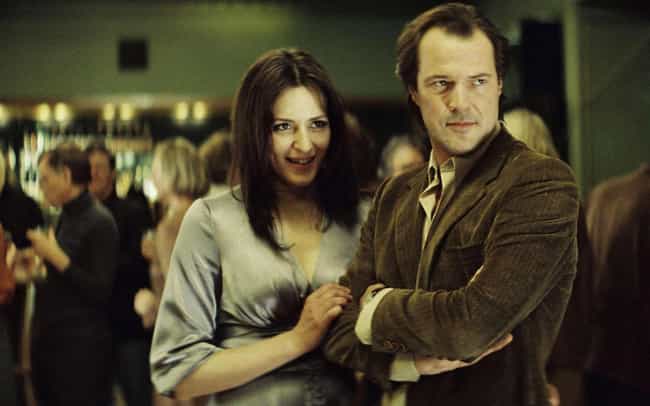Christy by Request — The Lives of Others

“The Lives of Others” is about the transformative power of the human connection — its capacity for opening even the most calloused and closed-off hearts and minds. That may seem like a quaint concept in these contentious times, but it’s certainly a welcome one.
I hadn’t seen writer-director Florian Henckel von Donnersmarck’s astonishingly assured feature debut since it came out in the United States in 2007. So I was pleased when it popped up as this week’s Christy by Request selection, which came from Barry Deacon in Britain (@ShieldJock on Twitter), who also happens to have kicked off this series with his suggestion that I review the Italian neorealist classic “Bicycle Thieves” back in February. (Barry’s got good taste.)
Germany’s “The Lives of Others” won the Academy Award for best foreign-language film and the same honor from my colleagues in the Los Angeles Film Critics Association. It also appeared on my 2007 top-10 list back when I was still the film critic for The Associated Press, I was happy to discover in retrospect. (Maybe I’ve got good taste, too.)
Henckel von Donnersmarck’s film centers on the relationship between a playwright (Sebastian Koch), his actress girlfriend (Martina Gedeck) and the Stasi secret police officer who’s been assigned to spy on them in 1984 East Berlin (Ulrich Muhe). Each affects the others’ fates in ways large and small, knowingly and unknowingly and — ultimately — heartbreakingly. The film’s last line is a doozy, but its quiet power is consistent with the director’s precise, controlled tone throughout.
“The Lives of Others” is exquisitely tense, with massive stakes and a pervasive sense of danger. Every conversation is fraught; every glance is a potential threat. Henckel von Donnersmarck puts us on edge from the start, cutting back and forth fluidly between an interrogation scene and a classroom of students who are listening to a recording of the questioning as part of their studies. Their teacher, Muhe’s Stasi Capt. Gerd Weisler, provides chilling tips and tricks to tell whether someone is lying and how to get more information out of them.
With his eerily placid demeanor and monochromatic wardrobe, Weisler is the picture of single-minded focus. Humorless and wiry with intense, steely eyes, he’s all about enforcing socialist rigidity and imposing the state’s will upon the people. But he finds himself unexpectedly moved when he sees Gedeck’s radiant Christa-Maria Sieland on stage starring in the latest production from her boyfriend, Koch’s Georg Dreyman. “I’d have him monitored,” Weisler tells his ruthless boss (Ulrich Tukur) of Dreyman, calling him “an arrogant type — the kind I warn my students about.”

His bleak existence stands in stark contrast with the joyous life Christa and Georg share. The parties they host at their warm, welcoming apartment are filled with boisterous artists and copious vodka. They passionately love each other, but they also encourage each other to maintain some semblance of creative integrity while still toeing the party line. “The Lives of Others” is very much of its time and place historically, but there’s a cinematic timelessness to its mixture of romance and intrigue, as well as a classic elegance to the storytelling.
The portly minister of state security, Bruno Hempf (Thomas Thieme), is all too happy to order a complete surveillance of Christa and Georg’s home, searching for any trace of subversion. He has his own sleazy interest in Christa, as we see from one particularly squirm-inducing scene. “People do not change,” Hempf says suspiciously of her and Georg as a means of justifying his actions. But maybe they do.
And at first, Weisler meticulously tracks their every word and move, with the insistent, string-heavy score from Oscar winner Gabriel Yared (“The English Patient”) heightening the already palpable sense of tension. The few flashes of dark humor that emerge are welcome, as when Georg playfully asks his neighbor across the hall — who knows he’s being bugged — “You can keep a secret, can’t you?”

But in time, Weisler finds himself increasingly engrossed in Christa and Georg’s daily activities — their pleasures, their sorrows — and eventually begins omitting details and orchestrating events to protect them. That he seems willing to sacrifice the reputation he’s established for himself — as well as his personal safety — to maintain his access to the couple speaks volumes to the power of human contact, removed though he is in his attic hideout. Even his face grows increasingly expressive the deeper involved he gets. All three of the film’s main performances are extraordinary, but the subtle transformation Muhe undergoes over the course of the film is deeply moving.
It’s not that Weisler is in love with Christa. That would be too simple. It’s as if he’s in love with both of them, and with their love for each other, and the endless possibility that represents within this suffocating setting. By the end, there’s a sense of hope — but it’s hard-earned.

A great foreign language film makes you forget that you’re reading subtitles. I forgot the first 10 minutes. A good companion piece for this film would be the TV series Deutschland ’84.
Thanks for sharing the review. I have enjoyed.
I am involved in the post your review is best.